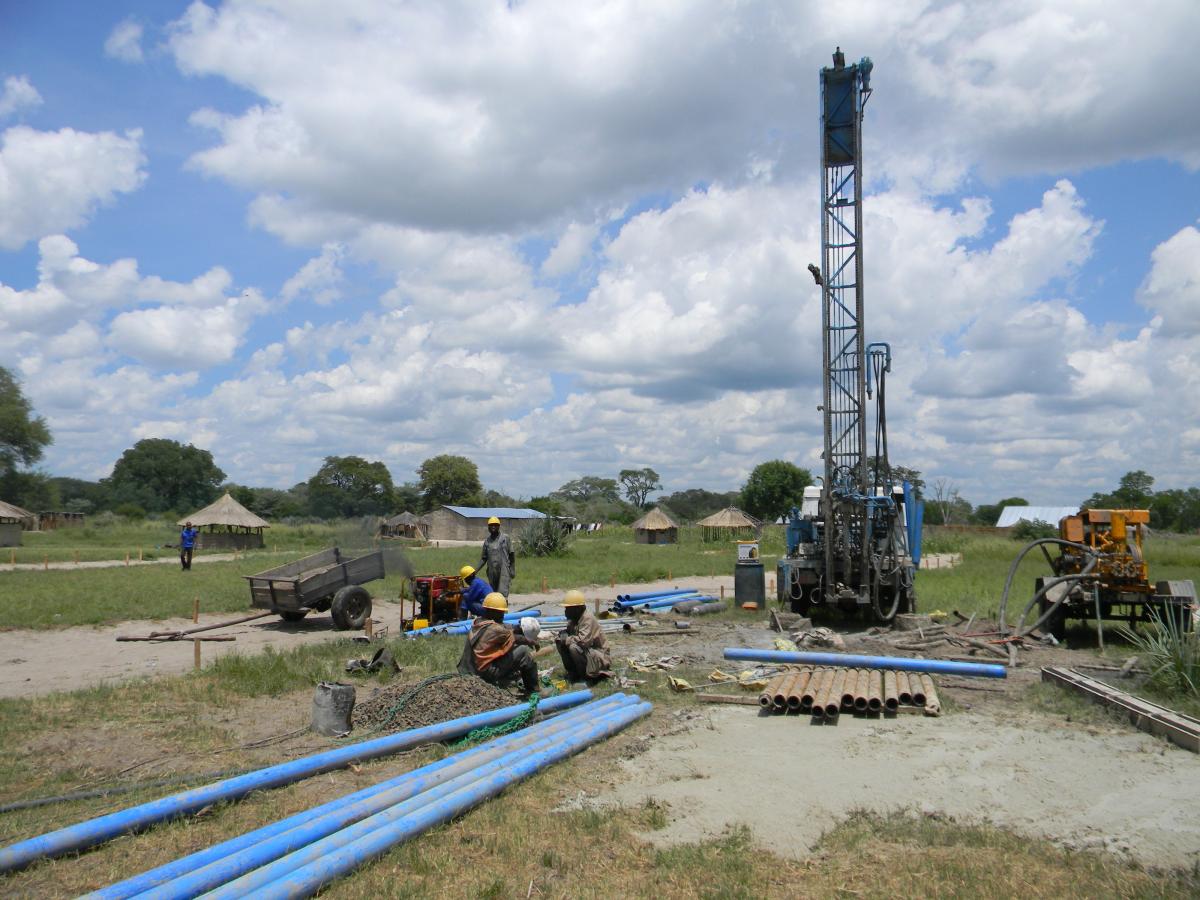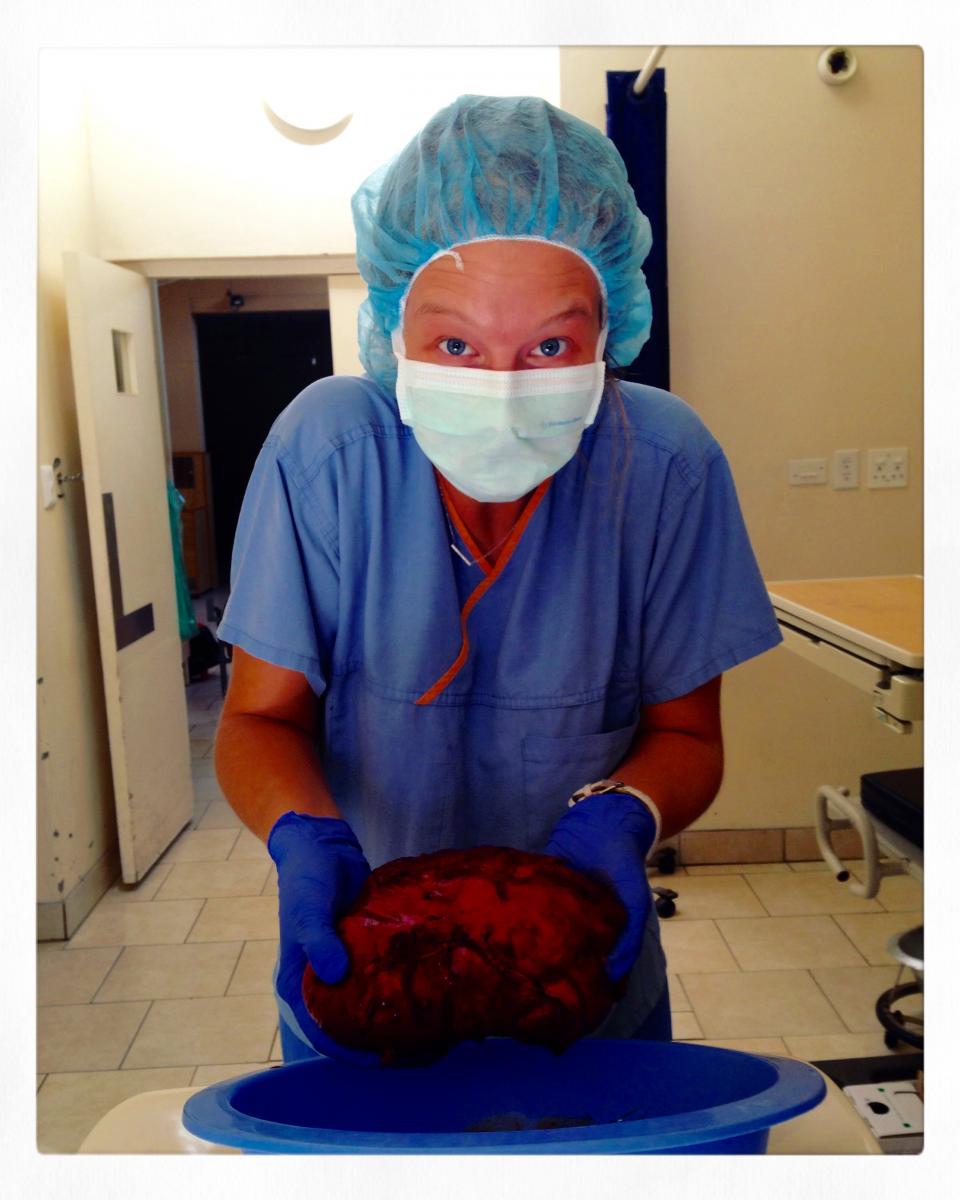The distribution points are often quite a distance from the farms as there are no villages as we know them. Instead, there are family farm groupings which consist of a few round mud huts with grass roofs enclosed with a fence of reeds, branches or living fences.
Besides being grateful for the food they receive, the people are excited to visit with neighbours and friends they do not see on a regular basis. You can see the excitement through their intricate handshakes, kisses on cheeks or palms and hand holding. The hand clapping of the women is a cupped soft clapping, while the men have a loud flat clap. The women also undulate with a type of yodel when they are really excited – like when the food trucks begin to arrive.
Right now, Western Province, Zambia should be experiencing seasonal rains, which typically begin in late December and continue until March. Last year, the rains began early and then no rain fell after January. This year, there have been some rains starting in December but only a fraction of what usually falls.
Many areas in Western Province are covered with grassy plains which are part of a river system that receives water in the rainy season. In fact, so much rain usually falls that most of the district is under water. When the water recedes it leaves the nourishment and moisture needed to grow tall grasses for cattle and for roofing material. The water also brings fish, which the people catch in fish traps and then dry for a protein rich addition to their diet.
Without adequate rains this year, many farmers are looking at another possible crop failure. Even if the rains begin to fall in abundance right now, many crops are beyond recovery.
In addition to food distributions, World Renew is carrying out a school feeding program to provide nutritious porridge to help keep school children in school. This program began again after the Christmas break and teachers and staff report that both parents and children are grateful for the breakfast meal provided.
While this school feeding program has helped to reduce school absence due to hunger, when we last visited the schools, some schools reported that students have been absent recently to work on their family’s farm fields. Another school reported that a number of students were absent due to a malaria breakout. This is an item that needs our ongoing prayers.
World Renew has also been involved in assisting the schools through the work of the staff, students and PTA (Parent Teacher Association) to develop school gardens. With the assistance of government agriculturalists, the community receives guidance in establishing school gardens using Conservation Farming methods, which includes mulching and using a seed planter that does not require ploughing the field. Not only will these gardens provide food for students, they offer an opportunity for farmers to explore alternate farming methods especially in drought situations.
Unfortunately Mwandi District as well as many other areas in Africa is experiencing a second year of drought and the gardens have not flourished.
A third component to our drought response is the construction of boreholes. The borehole crew has arrived and four out of six boreholes have been dug. We are waiting to receive reports as to the quality and quantity of the water.
On our trip to the drilling sites and schools, we realized again, how fragile the farming conditions in this part of Zambia are. There are no natural sources of water near most settlements and the rains they depend on have not been as reliable over the past few years. Whereas in the past the villagers had to move during the rainy season when the plains were flooded, now they are not sure when to plant their crops or if they do plant if they will realize a harvest.
When we return from a trip we are often asked what we missed the most when we were away and without a doubt it is the blessing of clean water – to drink, to wash, to clean, to water plants, to flush toilets – that comes straight from a tap in our homes.
When using water during this season of Lent time remember the many people – young and old – who have no access to clean water, who have to travel a long ways to obtain water and who often face the chance of contracting water borne diseases.
George & Toni Fernhout
IRMs in Zambia
You know you are in Zambia when:
-
A medical team from America is able to remove a huge thyroid in a five hour operation – giving the recipient back her life. Erin Koetsier, a World Renew Nursing Volunteer, is holding the thyroid – 1.7 kg or 3.7 pounds!
-
Getting back into the vehicle after a visit to a school you hear loud crying coming from a child. You look out and see a young girl holding her arm which is obviously dislocated. A local farmer, who was speaking with us, reaches out for the girl and very carefully bends the girl’s elbow back into place – very similar to what our doctors back home would do. Where did he receive this knowledge? Meanwhile the young girl ran back to join her classmate…
-
You discover what the three part handshake means: Welcome to the community; Thank you for coming to this place; Feel at home.
-
You spot a huge crocodile lazily making his way across the river in front of the house where you are staying and then you see the cattle come to drink, a woman come to fetch water and people continue to go around in their canoes. Each year there are people who are injured or lose their lives to crocodiles, but water is an important part of the people’s lives and the river is their best water source. They continue to bath, collect water, fish, bring cattle to drink, etc. But I will not be swimming…
-
You have to drive over two hours to Livingstone to fill up the tank at a service station and to buy groceries – nearby Mwandi sells some goods but has a very limited selection and the fuel is sold in plastic containers on the side of the road.
Blessings,



